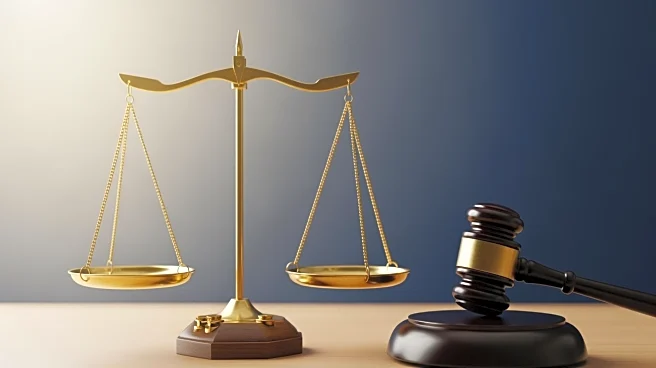What's Happening?
The Supreme Court expressed deep concern over President Donald Trump's reliance on a vague federal law to impose global tariffs. During the hearing, Chief Justice John Roberts and other conservative justices questioned the administration's claim that
it has the power to levy tariffs as a form of regulation rather than a tax. The case could have sweeping implications for the economy and presidential power, marking the first major challenge to Trump's policies since his return to office. The justices focused on the administration's use of the International Emergency Economic Powers Act (IEEPA) to justify the tariffs, with questions about the historical use of the law and its interpretation.
Why It's Important?
The case is pivotal for defining the limits of presidential authority in economic matters. A ruling against the Trump administration could restrict the use of emergency powers for imposing tariffs, affecting trade relations and economic strategies. The decision may influence how future administrations interpret and apply emergency laws, potentially leading to changes in policy and governance. Businesses and consumers could experience shifts in pricing and market conditions based on the outcome, impacting economic stability and growth. The court's approach to the case reflects broader concerns about executive overreach and the balance of power between branches of government.
What's Next?
The Supreme Court has yet to issue a ruling, with the decision expected to take weeks or months. If the court rules against the administration, it could lead to legal challenges and demands for tariff refunds, complicating financial and trade processes. The ruling may prompt legislative efforts to clarify the scope of presidential powers under emergency laws, potentially resulting in new regulations or amendments. Stakeholders, including businesses and trade organizations, are likely to react to the decision, influencing future policy discussions and economic strategies.
Beyond the Headlines
The case underscores the ongoing debate about the balance of power in the U.S. government, highlighting concerns about executive authority and congressional oversight. The use of emergency powers for economic measures raises ethical and legal questions about the limits of presidential action. The outcome may shape how future presidents approach trade and international economic policies, potentially altering U.S. engagement with global markets and influencing international relations.


















